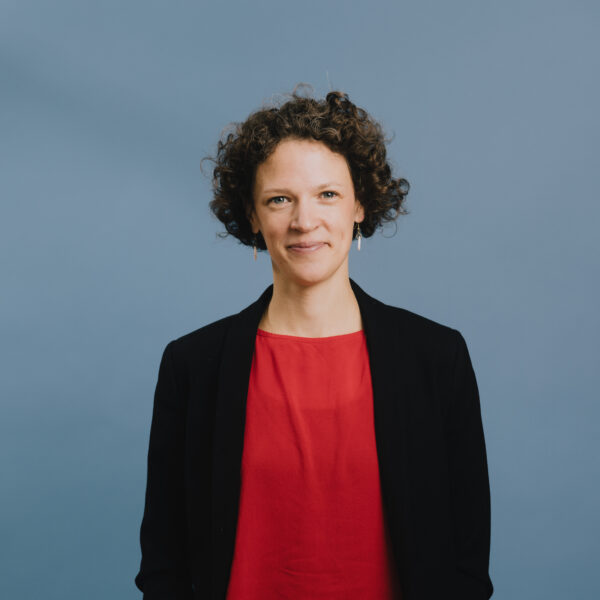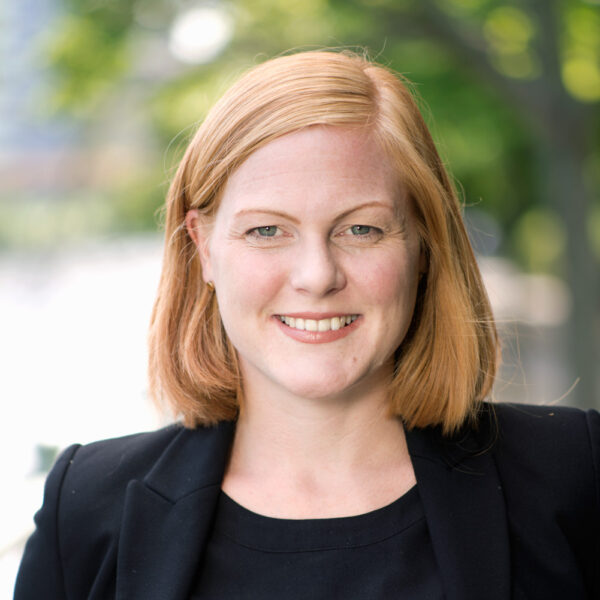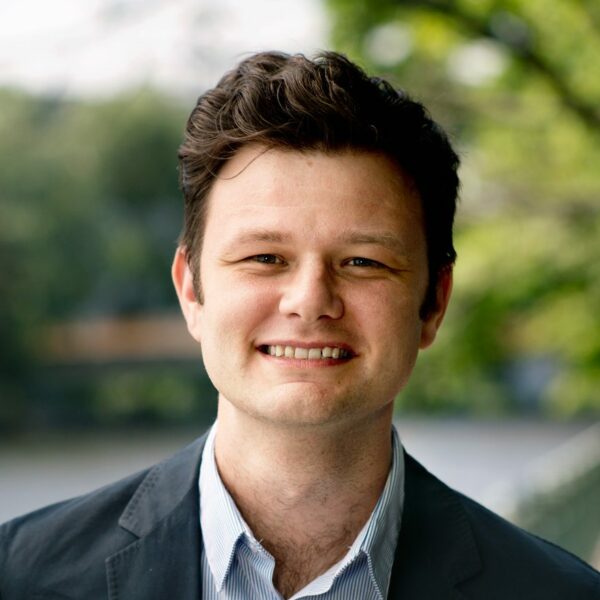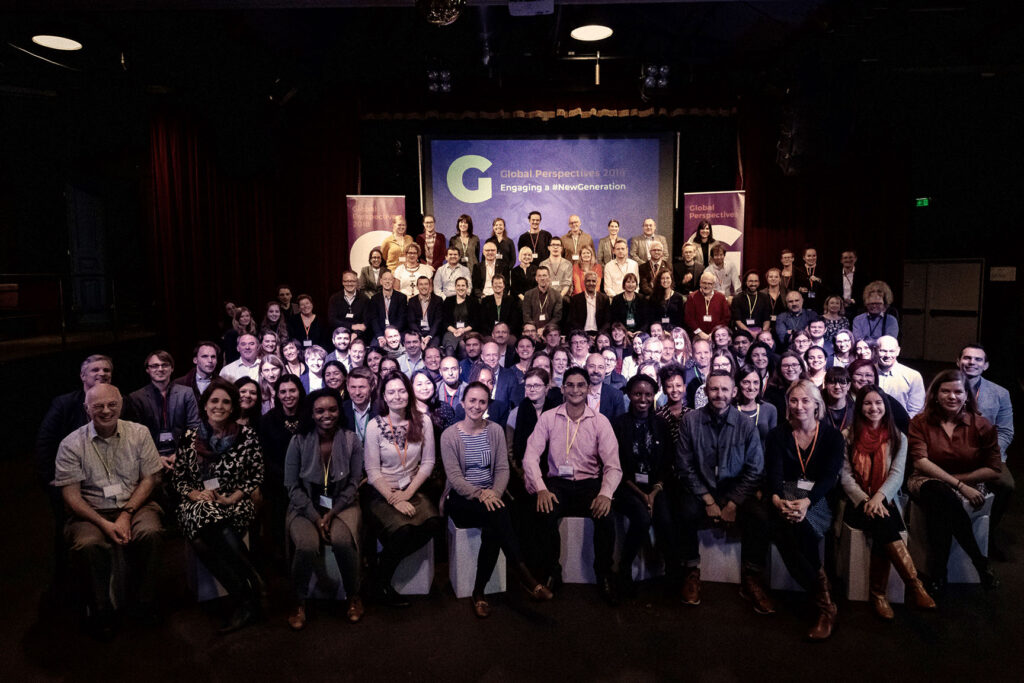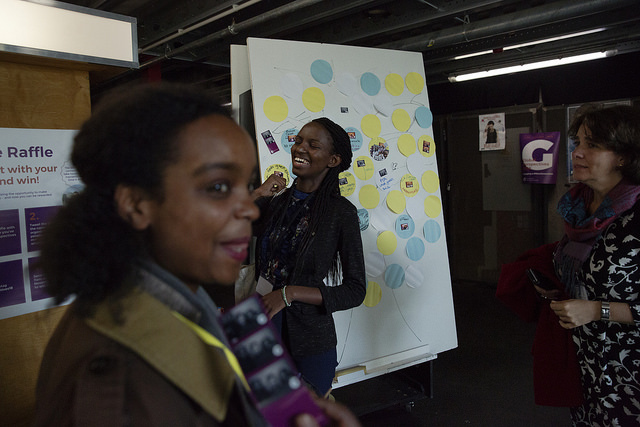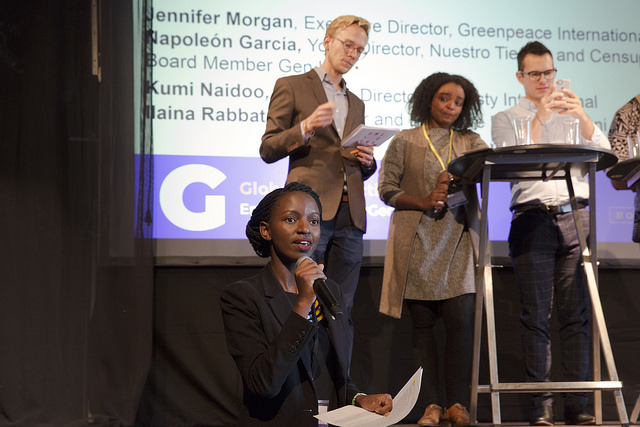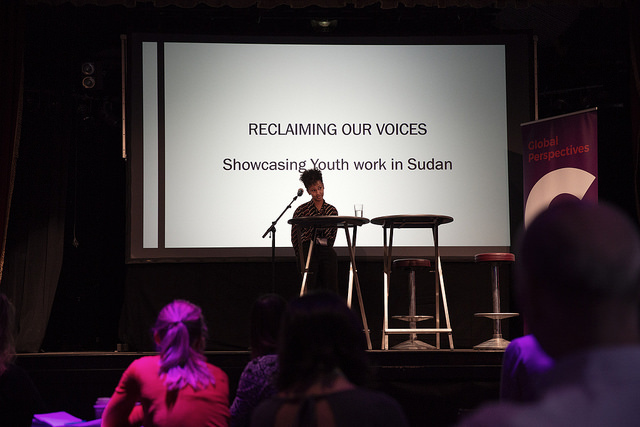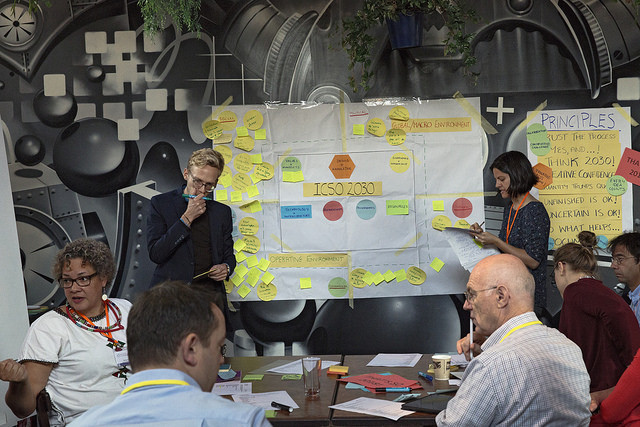Prolonged humanitarian crises, the rise of generative artificial intelligence, the use of disinformation to polarise societies and manipulate elections, the suppression of civil society from state and non-state actors and decreasing funding… are just a few of the ever-growing challenges that social justice, humanitarian, and development organisations must contend with. As progressive and rights-based civil society organisations – from local to international level – are grappling with these crises of the past few years, the International Civil Society Centre once again had the honour of curating our yearly conference, Global Perspectives on these topics. “Global Perspectives – Moments of Truth” happened on 9 November and brought together hundreds of online participants across five different sessions to not just ponder these challenges but provide concrete examples and explore ideas on how we can collaboratively tackle them.
Though each session was independently curated, three overarching themes emerged.
The Future of Civic Space is Now
Anticipating the factors that will constrict our civic space a decade from now demands our attention today. Civic Space has been in decline and is likely to continue on this trajectory. Are we adequately addressing the issues that will likely shape our societies in the next decade, impacting our civic engagement? In the session titled “Learn From and Engage on Futures Scenarios for Civic Space” participants learned about the outcomes of the Centre’s “A History of Civic Space 2024-2034”, exercise, where representatives from 15 civil society organisations collaborated to develop possible future scenarios for civic space. Session participants engaged in the scenarios and identified actionable steps to either advance or prevent undesirable outcomes. For example, a likely scenario of artificial intelligence (AI) first enabling a lot of good work at scale and then backfiring on civil society as “obstacles to progress”, highlighted the urgency to get into the AI game now. Later in the day at the “Digital Dialogue – AI: Solution or Threat to Mis-/Disinformation?” drove the point home: two scholars Liz Orembo from Research ICT Africa and Admire Mare from the University of Johannesburg, called on civil society organisations to address AI now, as governance advocates, watchdogs, as well as helping to increase media literacy. This is especially needed as there are a number of key elections coming up next year where we will likely see sophisticated disinformation campaigns. Henry Parker from Logically, informed us that there is a lot of potential to use AI to identify disinformation campaigns and reprimand the actors responsible. During “A Sector Conversation”, Stéphane Duguin from CyberPeace Institute warned us that we need to create a comparable countermodel if we wish to increase our capacity to oppose disinformation campaigns. Read their approach to responsible use of artificial intelligence here and watch this space as we are launching our Sector Guidance on Mis-, Dis-, and Mal-information: Insights and Foresights in early 2024.
Representation Matters
Two sessions, “The Truth is in the Telling” and “Exploring Personal Realities (of Marginalisation)”, delved into the importance of representation. Insights from individuals working with and identifying as members of marginalised communities underscored the need for more direct dialogue with those in power. Nana Afadzinu from WACSI emphasised in “A Sector Conversation” the need for introspection and acknowledgement of systemic inequity. Festus Odingo from the SDG Kenya Forum emphasised the significance of partnerships as a key force for change, emphasising how they may broaden the scope and effect of community-based initiatives. Representation of course also happens through communication pieces – donor reports, flyers, fundraising advertisements and much more. Undeniably, communication about Global North-financed Global South projects has been a big part of manifesting white saviourism and entrenching power imbalances. By now, several organisations have begun to examine this reality and make changes. The Ethical Story Telling Guideline, a toolkit that PATH and Metro Group DRC contributed to, was presented by the speakers. It can assist companies in determining how to, for instance, become more ethical by making concrete adjustments to the planning process. Communication audits, such as the ones conducted every two years by CARE International, can be useful in holding teams accountable and providing incentives for improvement. As part of its bottom-up strategy to alter various communication channels, CARE has made significant efforts to maximise informed consent and minimise unconscious bias. Yet, there are still incredibly difficult dilemmas when organisations must weigh communication subjects’ agency against their safety, for example when portraying female CSO workers in Afghanistan. The emphasis is on respect. A key takeaway from our sessions is to aim to do no harm but failing forward is inevitable as we push one another to improve and recognise ethical storytelling as a fundamental component of power shifts within the industry.
Weathering a Perfect Storm
Our speakers highlighted this year a shrinking civic space, humanitarian crises piling up and worsening, colonial structures still fostering inequity, and growing cybercrime and disinformation adding to the complexity. All of this is happening in the face of a challenging global economy with a sharp decline for our causes. Are we experiencing a perfect storm? Yet, for most in the sector, there is a firm resolve to plough on despite difficult circumstances. There is no alternative. It has been inspiring to see among others, leaders from ICVA, CIVICUS, WACSI and the CyberPeace Institute sharing resources, knowledge and honest invitations to collaborate more, helping each other to overcome our deficiencies and capitalise on our respective expertise and strengths.
To continue surviving the storm, the International Civil Society Centre will keep bringing attention to the incredible innovations that are being developed in the field. As Mirela Shuteriqi from ICVA said in her closing statement, we must also transform ourselves. We must encourage a culture and bring about changes at the UN level, using this as a chance to collaborate and tackle social justice issues. We remain dedicated to facilitating dialogue, sharing innovations, and fostering collaboration within the sector. It is through collective determination, thoughtful introspection, and ethical storytelling that we can face the challenges that lay ahead, transform ourselves, and forge a path towards a more just and equitable future. The journey is ongoing, but together, as a united force, we embark on it with unwavering resolve.
Special thanks to all our speakers – Jennifer Abomnger, Nana Afadzinu, Stéphane Duguin, Patrick Gathara, Arnold Gekonge, Eva Gondor, Heather Hutchings, Wolfgang Jamann, Lysa John, Hussam Joudah, Admire Mare, Shalini Moodley, Patricia Mugenzi, Levis Nderitu, Nana Nwachukwu, Festus Odingo, Elizabeth Orembo, Henry Parker, Neha Rayamajhi, Mirela Shuteriqi, Clare Spurrell, David Verga, and Rachel Wilkinson.

